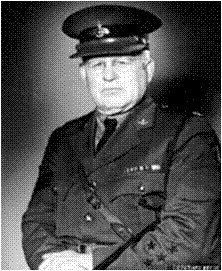Cataline

Jean Caux
1833 - 1922
Displayed here is an Apparajo, or pack saddle, used by Cataline.
Cataline is perhaps the best known packer in BC history. Prospectors throughout the goldfields in BC and the Yukon depended upon him and his employees to bring in the supplies they needed to live and work. He was known for being tough, reliable, eccentric, and for never losing track of an order though he kept no written records.

Mules carried the same pack every day. It is said the animals knew their own packs and at the sound of the signal bell would find their own pack and wait beside it to be saddled. Cataline’s pack trains would set out 2 A.M. each day and stop by 2 or 3 P.M. to avoid the worst of the flies and the heat of the day. Pack trains made between 15-25 miles a day.
Cataline’s pack train in Barkerville, BC.

Click to Listen to Louis LeBourdais tell the story of a pack train’s arrival in Barkerville.
Cataline did not see his family often, but did support them financially. Reportedly he made his contributions in $20 gold coins. Below is a letter Cataline received from his daughter, Clemence in 1902.



It is said that in his 54 years of operating pack trains the only shipment in Cataline’s care that went astray was two pounds of Limburger cheese, discarded by employees who thought it had rotted.
This cutter, found in our store display, was used from 1932-1970 by the Bunting family. Cutters like this were used to cut “wheel blocks” (large rounds of cheese). William Bunting worked for the Hudson Bay Company in Quesnel, Fort St. James and Fort Fraser.


In his later years Cataline took up residence in Hazelton, BC where he remained until his death in 1922. During these years Sergeant Sperry Cline, pictured below, befriended him.